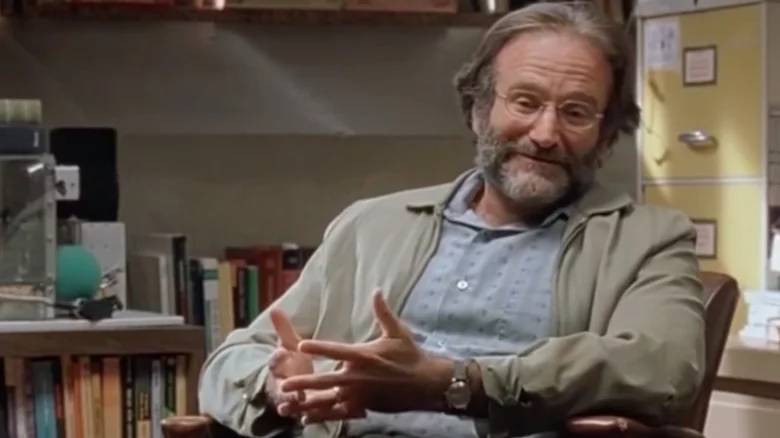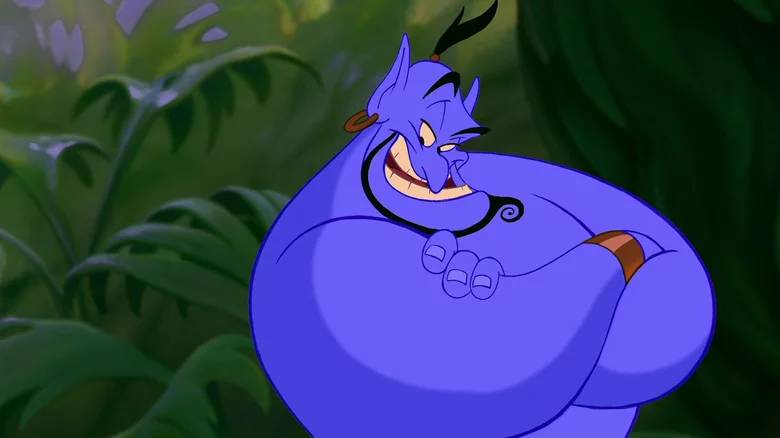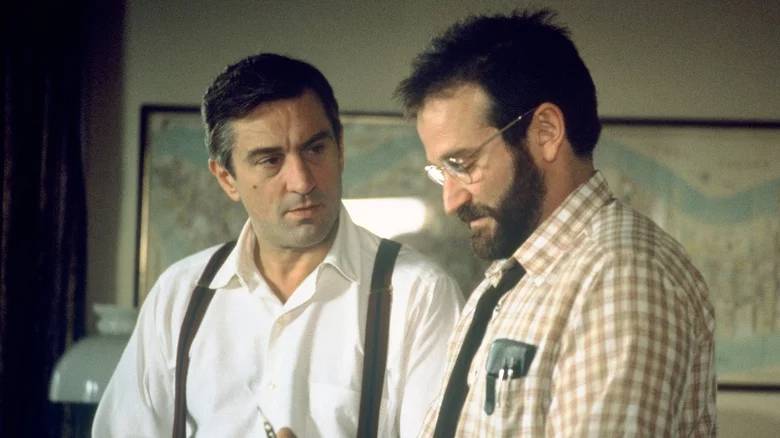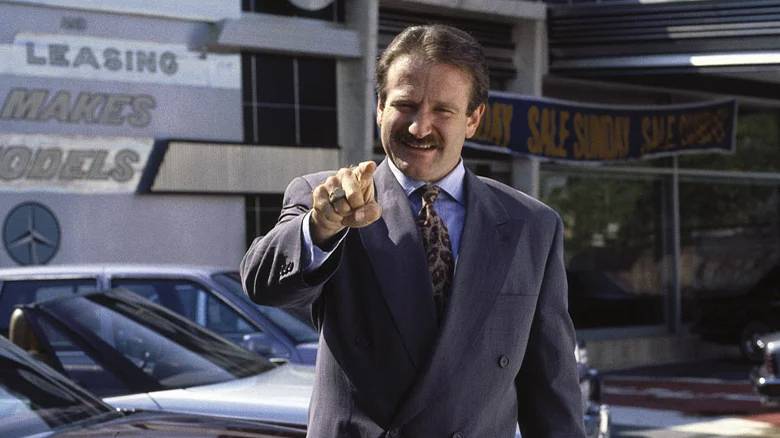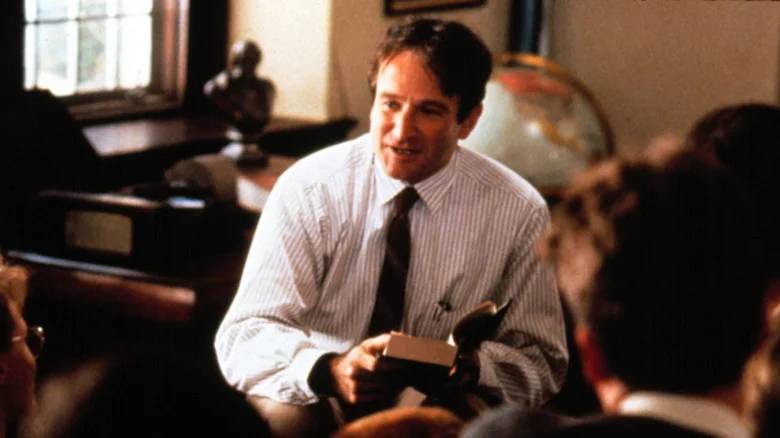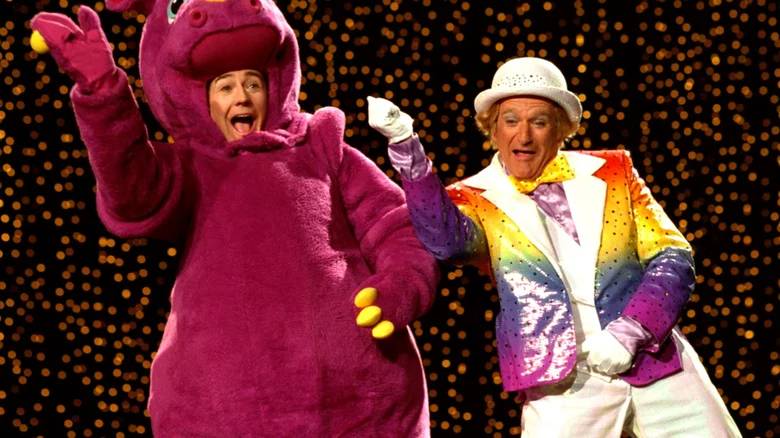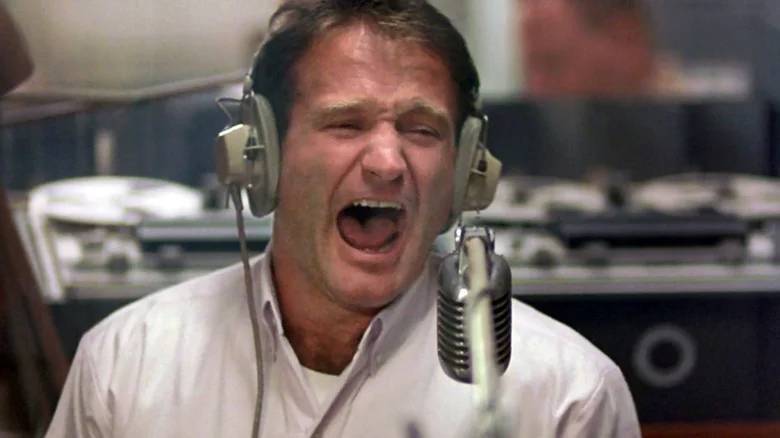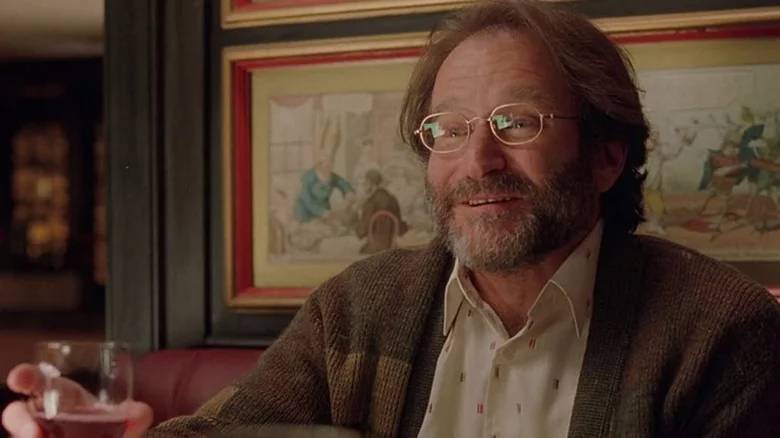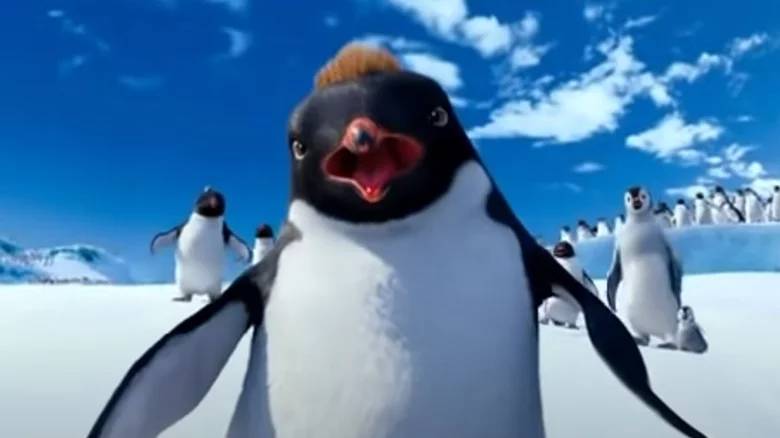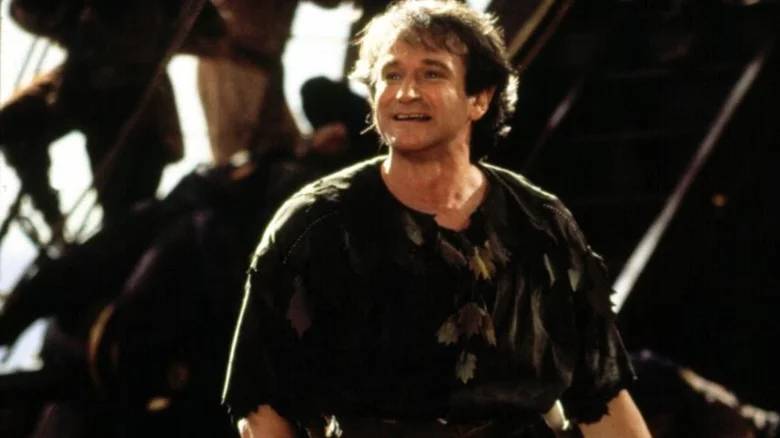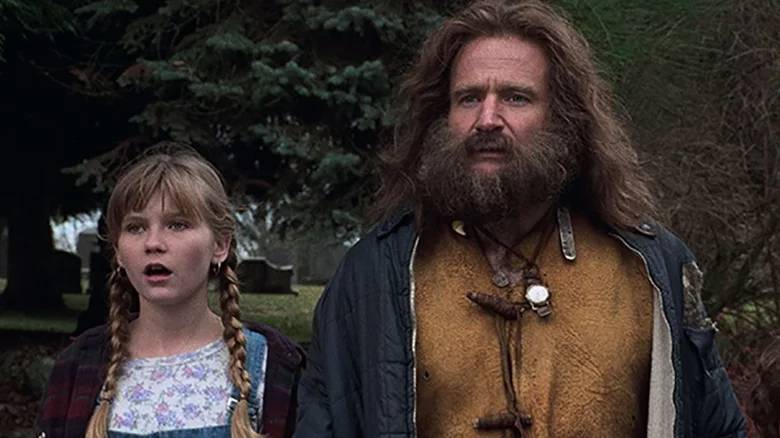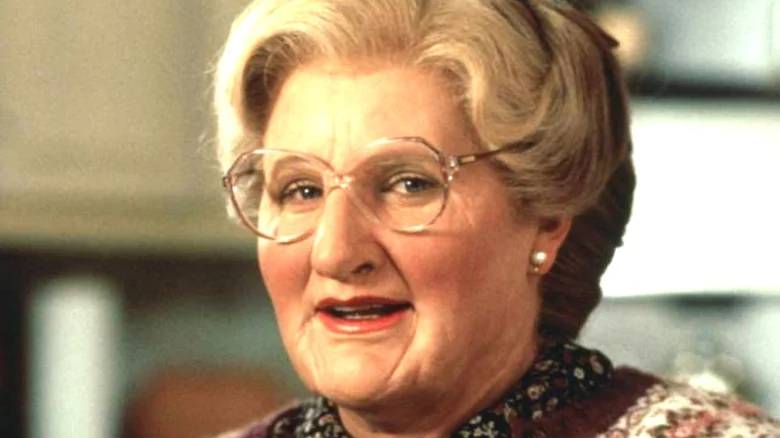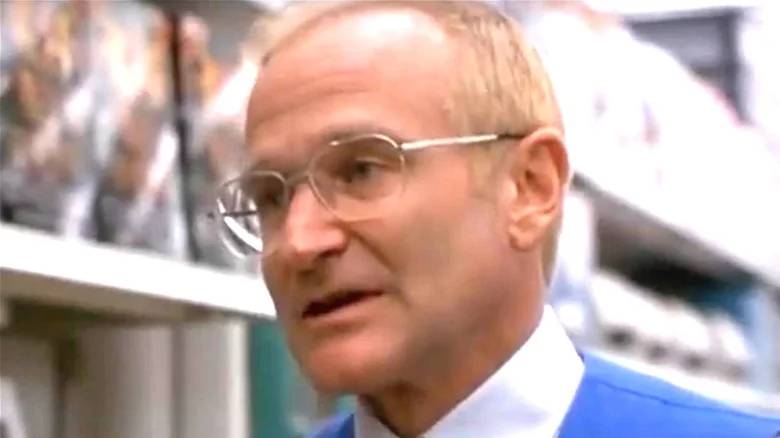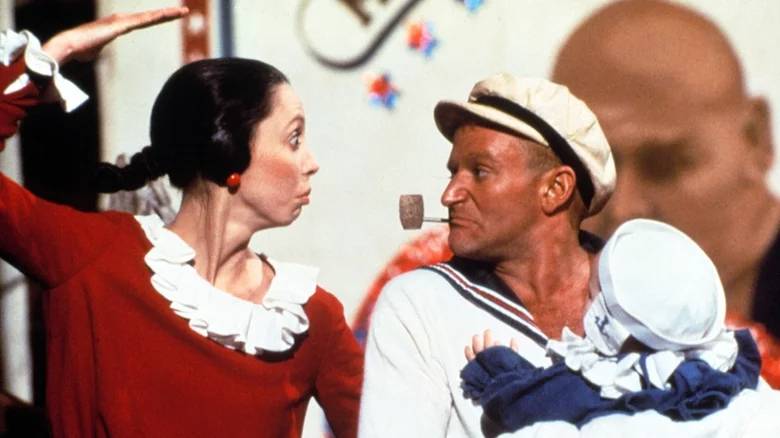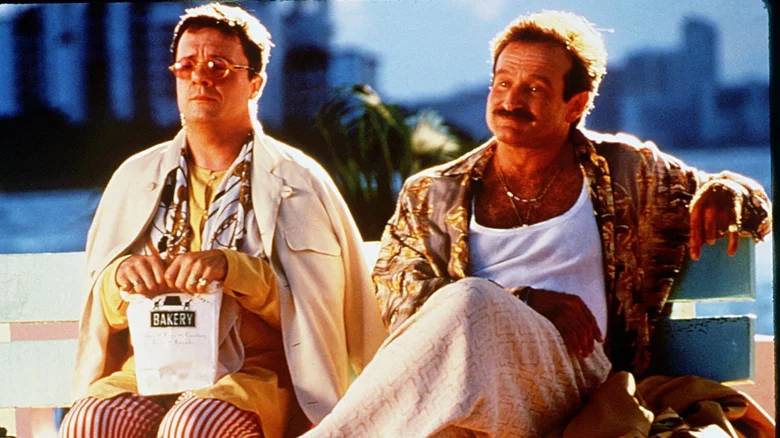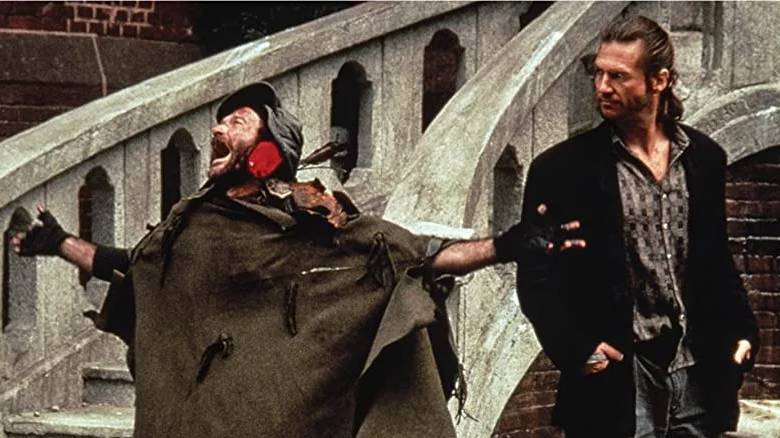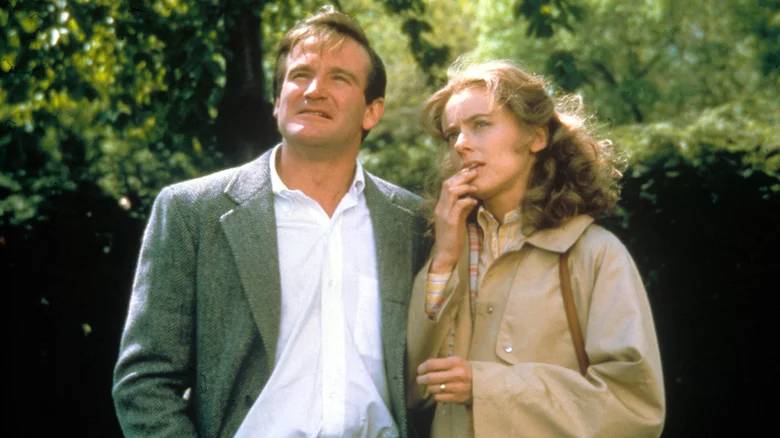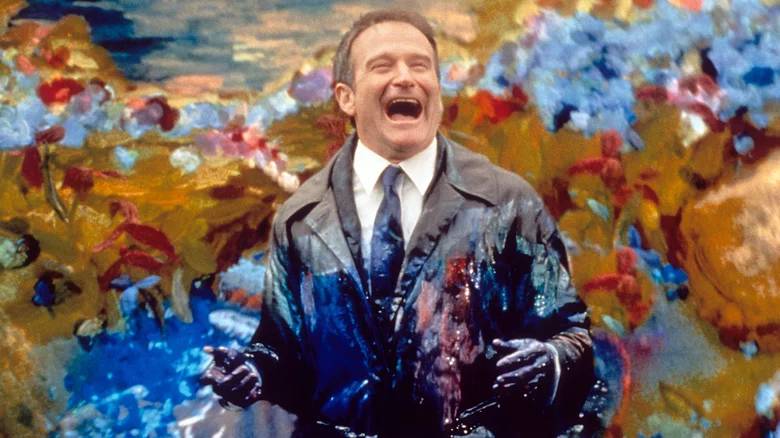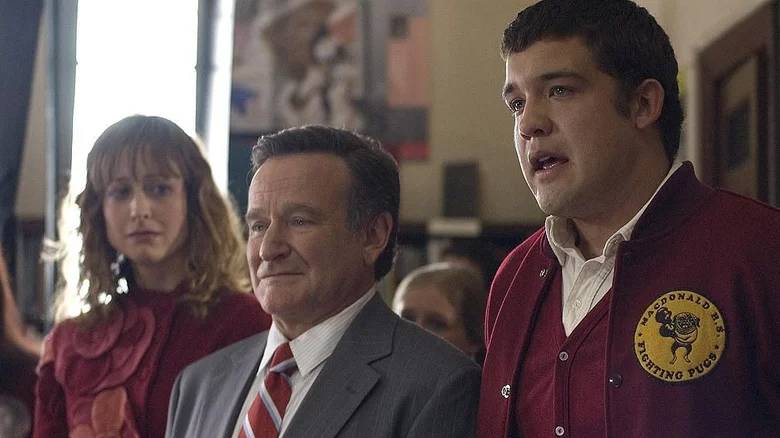Every performance by Robin Williams was a magic trick.
The actor didn’t make anything vanish, though. He didn’t even supposedly vanish into his characters, according to one argument. There was too much of the charismatic Juilliard-trained actor for any script or character description to accommodate. Scripts and characters appeared to fit his abilities more frequently than not. That was only one of Williams’ many entrancing qualities. No matter how many movies you had seen him in or how used you were to his talents. Every performance he gave had the same freshness of a first encounter. A fact that cannot be true. It goes beyond truth. This is magic.
Robin Williams was one of the best magicians in movie history. He persuaded you that men could fly, genies existed, and that an actor could adopt the persona of a matronly Irish babysitter and deceive everyone into thinking she was the real deal. Whether a movie is good or poor, it is still worth praising for the magic it contains.
The top 20 unforgettable Robin Williams films are listed below in alphabetical order.
Aladdin
It’s challenging to justify “Aladdin’s” inclusion on any list. Lists nearly come pre-stamped with “Aladdin,” which is such a pop culture icon, an all-time Walt Disney animation classic, and a revelation for kids growing up in the 1990s. Let’s look for a fresh perspective.
Art serves a variety of functions, some of which include expressing a sense of community loyalty and obtaining insight into your surroundings or a deeper aspect of yourself. I would argue that there is an entire generation that is equally as likely to remember the first few notes of “A Whole New World” or phrases that Robin Williams maniacally improvised as they are their keys every morning, despite the fact that I am unable to provide any scientific proof of this. The most dissimilar of persons can come together in that bond to share a space. We are all diamonds in the sand that we have carved out for ourselves, as “Aladdin” tells us, and maturing means realising that gleaming like a diamond is a choice, not a given.
But for this one thing alone, Williams is everything. In “Aladdin,” Robin Williams delivers a performance that, together with Walt Disney’s Mickey Mouse and Mel Blanc’s Bugs Bunny, belongs on the Mount Rushmore of voice acting. Williams and “Aladdin” have a lasting impact on people. That deserves to be on any list.
Awakenings
Everyone involved in “Awakenings” is making an effort to take a fresh approach. The character of Dr. Malcom Sayer, played by Robin Williams, is looking for novel ways to treat patients who are catatonic. Robert De Niro is one of the people he mysteriously wakes up, and they are all struggling to fit into a modern environment they are unfamiliar with. De Niro, Williams, and director Penny Marshall—known for the Whoopi Goldberg film “Jumpin’ Jack Flash” and the classic comedy “Big” at the time—all sought to reposition their respective careers. Everyone’s efforts are rewarded, even if only briefly, on several levels.
Why so quickly? Because one of the main takeaways from “Awakening” is to live as carefully as you can in the time that you have. Dexter Gordon, a notable jazz musician who makes an appearance in the movie, passed away soon after it was released. Max Von Sydow, Marshall, and Williams have all also passed away. Despite everyone’s best efforts, Sayer’s patients inevitably return to their catatonic states. All of this makes “Awakenings” sound like one of the most depressing movies ever made, but it’s so full of life and longing that it’s hard to turn away. It is unique among vehicles for the strength and suffering of growth. It changed the lives of practically everyone involved, including Julie Kavnar, Bradley Whitford, and an uncredited Vin Diesel, much as how the patients in the movie change everyone around them to be more compassionate people. That is the sign of fundamental art.
Cadillac Man
Throughout his life and career, Robin Williams frequently entered and exited the shadows. He never thought he should portray someone with questionable morals. His secret weapon was that. Williams was aware of the evil that existed in human nature. His depth of knowledge was astounding.
Williams first showed this intelligence in Roger Donaldson’s “Cadillac Man,” a movie that is subject to a mountain of criticism. Unquestionably out of date, the film’s abrupt transition from sleazy comedy to a parody of “Dog Day Afternoon” doesn’t work. However, Williams’ performance in “Cadillac Man” is flawless. Williams established the foundation for all the violent and unsettling work he would do around the turn of the century as Joey O’Brian, a car salesman without morals. However, when he pits his wits against the cuckolded hostage-taker, Larry (Tim Robbins, fresh from playing “Bull Durham”), the results are hilarious despite his unfortunate lack of restraint and impulse control.
The fact that Willams finds joy in the darkness he explores in “Cadillac Man” justifies its inclusion on this list.
Dead Poets Society
We strongly advise reading Kevin Detmarr’s scathing essay “‘Dead Poets Society’ is a Terrible Defense of the Humanities'” before seeing “Dead Poets Society” once more.
Detmarr’s main criticism of the movie is that John Keating, played by Robin Williams, is virulently anti-intellectual “He truly gives his students very little room for innovative thought.
I regret to inform you that I’m “Team Kevin Detmarr is Right” if you adore “Dead Poets Society.” “and will support him in this. The struggle for the protagonists’ spiritual lives in Peter Weir’s film only serves to provide them with one route to Carpe Diem. That thesis is unclear and maybe damaging. It may be argued that it purposefully misinterprets how the study of letters operates.
What makes “Dead Poets Society” so adored, then? There aren’t many works of intentionally inspired craft like that. From Weir to Williams to rising talents Ethan Hawke and Josh Charles, everyone involved is giving it their all. The goal of the movie is to have you experience what Keating wants his students to have while reading Robert Frost—their hearts racing. However, it loses a few points for using a flawed set of shortcuts to achieve that sensation.
Death To Smoochy
Comedies are little thrillers. Suspense is the key to their agreement with their viewers. The film promises its viewers they will laugh, and they eagerly anticipate a punchline or payoff. The sophomoric and vicious “Death To Smoochy” directed by Danny DeVito, which savages the children’s television industry through a succession of flawless set pieces, is one of the best examples of this. In one, the disgraced Rainbow Randy (Robin Williams) tries to ruin the career of Smoochy, the successor who resembles Barney (Edward Norton). He accomplishes this by substituting cookies shaped like male genitalia for the kid-friendly refreshments offered by the entertainer. To the shock of everyone involved, Smoochy exposes the explicit desserts while on broadcast.
How he escapes from this situation is reminiscent of both Judd Apatow and Alfred Hitchcock. Did you forget how hard “Death To Smoochy” went? Almost everyone has. Years before its time, DeVito’s movie served as a model for movies and television programmes that preferred to make viewers chuckle tensely rather than help them decompress. It has a family tree with “Teddy Perkins,” the infamous “Atlanta” episode, and “It’s Always Sunny in Philadelphia,” DeVito’s signature late-career film. They were allowed to grow by the seed. Whether it’s the first, second, or a hundredth time you see it, “Death to Smoochy” demands your attention.
Good Morning, Vietnam
The article’s title, “The 20 Best Robin Williams Movies, Ranked,” can be generally taken in one of two ways: either it lists the films in which Robin Williams provided the best performances, or it is about the best films in which Robin Williams appears. Williams’ performance in “Good Morning Vietnam” makes it a superb movie that earns the top spot on our list.
Without Williams, “Good Morning, Vietnam” doesn’t even start to function or make sense. Any other actor playing DJ Adrian Cronauer would be a fool’s errand. Williams performs a live-action voice-over while performing subtle physical tasks; this is a Herculean task, but he makes it seem as natural as breathing. Williams makes the film’s sharp remarks about the Vietnam War and information control shine. The fact that Barry Levinson’s movie rejects the white saviour narrative that a lesser picture may have is even more stunning. The film “Good Morning, Vietnam” acknowledges that no one person can end the Vietnam War because it is too complicated, traumatising, and horrible.
“Good Morning, Vietnam” is fantastic because of grace notes like this, but Robin Williams is what makes it indispensable. The best movie Robin Williams appeared in might be any of our last five or so selections, but this is the one that nobody else could have made. It represents the pinnacle of his acting career.
Good Will Hunting
Most people will remember “Good Will Hunting” for popularising Matt Damon and Ben Affleck. But if there were any justice in the world, Sean Maguire and his tale of his late wife’s farts would be more famous than Robin Williams’ Academy Award-winning performance. If you haven’t seen “Good Will Hunting,” here is some background info: Will (Matt Damon) confesses to dating a girl not long after Sean (Williams), his therapist, earns his trust. And he acknowledges that scares him. And when Sean surmises that Will is worried about being perceived as flawed, he brings up his late wife’s farts. “That’s what I remember—[she] used to fart when she was anxious, he chuckles. small details like that. But I miss those things the most.”
It’s an incredibly moving scene that captures both the essence of what love is all about and why Robin Williams was such a gifted actor. Williams excelled at his craft. There is no doubt in this. However, watching him meant engaging with his chaotic imperfection and willingly submitting to a tremendous surge of energy and impulse. Williams frequently deviated from the script, and when he did, it nearly appeared as though he was fumbling the words or making them up. He was certainly not svelte. That made up half of his appeal. It adds to the attractiveness of the film. The aesthetic flaws in “Good Will Hunting” are presented with sloppy ease and brilliance.
Hamlet
Robin Williams had acting training. Given Williams’ talent for improvisation and stand-up comedy, it’s simple to forget that he was a formally educated thespian who attended Juilliard. Kenneth Branagh was aware of it. Williams was cast as a minor courier by the name of Osric in his 1996 rendition of William Shakespeare’s “Hamlet,” not as Polonius, King Claudius, or even the Gravedigger.
Was Williams’ generosity wasted on Branagh? Hardly. Actors were referred to as players throughout Shakespeare’s era. They were awarded their parts after joining groups that were commissioned to perform a composition. Branagh assembled his Hamlet cast in this manner. He put together a killer’s row of talent and worked out how to fit them in after the fact. Williams consequently finds himself in a thankless role, adding his distinctive flare. Its subtle brilliance is the reason “Hamlet” succeeds. Other Shakespeare film adaptations abound, but few truly honour the imaginative process that drove the originals with such passion.
Happy Feet
Many people wouldn’t anticipate “Happy Feet” to be on this list. An integral part of the Gen Z film canon, George Miller’s animated comedy about a young penguin banished for tap dancing is also beautiful and amusing. Although it’s simple to miss, viewers in the millennial and Gen X generations shouldn’t do so.
Robin Williams’ performance in “Happy Feet” also lives up to the high standards he set in the 1990s. Williams’ work as Ramón, Cletus, Lovelace, and the movie’s narrator is proof of his kaleidoscope talents and a reminder that he was surprisingly adaptable. However, no voice-over performance by any actor will ever approach what Williams produced as the Genie. Williams’ fundamental feel rarely changes, yet the various ways it shows up are so dissimilar that it’s nearly mind-boggling. “Happy Feet” bases itself on that gift. The rest of the movie quickly catches up to him.
Hook
The film “Hook” is not among Steven Spielberg’s best. Let’s be clear about that. The Peter and Tinkerbell side story falls flat. Since the beginning of the film, The Lost Boys (who really great; there will be no Pockets defamation here) have seemed out of date. Because no other movie is more representative of millennials’ formative years, “Hook” survives. Additionally, it’s the ideal ride for Robin Williams.
Williams’ career did not improve after “Hook.” No reality existed where it could have happened. The most talented filmmaker in the world, “Hook,” gave an actor who more fully captured the spirit of youth than most young people the reins of Earth’s most recognisable juvenile character. Williams’ performance as Peter Pan was phenomenal. The movie perfectly captures him. Nearly as illuminating is Hoffman’s evil Captain Hook. The first hour of the movie, which is purportedly the darkest sequel to J.M. Barrie’s book, verges on being devilishly smart.
This absurd, over-the-top, and somewhat corny comedy about keeping youthful at heart is also an over-the-top, poignant movie about becoming a father. It is clear that a parent created “Hook.” The combination of that resonance and Williams’ grace makes it a classic.
Insomnia
A Christopher Nolan film, regardless of quality, is still a Christopher Nolan film. That entails excellent editing, a complex and unnecessarily sophisticated plot, and sensibilities appropriate for the large screen. Even the minimalist and personal “Following” tries to be cinematic and more expansive than its limited resources allow.
“Insomnia” still thrills and dazzles in equal measure, despite being a bit disappointing after “Memento” and not quite as well-known or enduring. A gritty adult detective narrative with the scope and weight of current blockbusters is presented here. Just that merits a celebration.
Also included in “Insomnia” is one of Robin Williams’ most impressive performances. One of the few roles played by the actor that doesn’t feature his signature whimsy or sad clown sadness is Alan Locke. He is brutal, cunning, and only enjoys himself via violence, making him the ideal counterpoint to Detective Dormer (Al Pacino), a cop troubled by his transgressions. Williams walked in “Insomnia” in a way that allowed Heath Ledger to play the Joker in Nolan’s “The Dark Knight.” They are great examples of casting outside the mould for a big-budget movie. A pleasant performer was able to express a dark strain of wickedness that the general public is rarely prepared for in both roles.
Jumanji
Here, I must admit to some bias. I became an actor because of the movie “Jumanji,” in theory. On the other hand, I write about movies and television for that reason. Through his brilliant performance in this film, Robin Williams made me adore entertainment. Being neutral when discussing “Jumanji” is impossible, yet discussing it critically is not difficult.
So, let’s start with those objections. Its CGI-heavy set pieces aren’t what make Joe Johnston’s effects-heavy family movie compelling. Most of them have aged pretty moderately. To be fair, Johnston shoots them with his trusted expert’s eye (the back-to-back wasp and monkey beats range from claustrophobically terrifying to comedically chaotic), but generally speaking, they are too uncanny valley to land successfully.
The cast is what really hurts. Although Kristen Dunst and Bonnie Hunt are always terrific, it’s hard to emphasise how much they excel in this film. Dunst builds on the vulnerable side that made her so popular in “Interview With A Vampire,” while Hunt is given the opportunity to explore the whole stylistic spectrum from romantic lead to action star. The movie also makes a startlingly insightful point about how video games for kids might serve as growth tools. Make no mistake, though. Since this is Robin Williams’ performance, he almost portrays the film’s ringmaster. Williams’ Alan Parrish must handle every significant plot point, from the humorous to the perilous, and he does so with startling grace.
Mrs. Doubtfire
“Laugh to stave off tears.” That’s an old adage that Robin Williams practically made his own over the course of nearly four decades. The actor gives his most heartbreaking performances. Nobody can describe “Mrs. Doubtfire” as a stroll in the park, even as no one would mistake it for a tragedy. The movie by Chris Columbus, which follows a separated father who pretends to be an Irish nanny for his children, may have been a lesser effort. Instead, the comedy in the movie serves to balance out the hurt of being apart. Williams and Sally Field argue verbally in front of their kids. Stu, played by Pierce Brosnan, is a really kind person who only competes with Williams’ Daniel because he is attractive and considerate to Field’s Miranda. If family movies serve as a gateway to ideas that are more sophisticated, “Mrs. Doubtfire” does just that and more.
But don’t be fooled, “Mrs. Doubtfire” is also hilarious. Williams still dominates the character of Euphegenia Doubtfire, combining his love of the truth, extreme accents, and true comic ribaldry into one crazy but realistic package. Yes, the film’s gender politics have not aged well. When Doubtfire’s makeup is removed during the movie’s climax, it is all too simple to understand why Daniel’s family and other people fall for his deception. Mrs. Doubtfire requests that they grinned. “Mrs. Doubtfire” is a reflection of the melancholy and potential heartbreak that come with love. Laughing is simpler than crying.
One Hour Photo
All artists go through phases, whether or not they are well-known. Picasso experienced a Blue Period. For some reason, Laurence Fishburne frequently appeared in roles as men who would do everything for their spouses (“Hannibal,” “Contagion,” “Have a Little Faith”). Robin Williams had a year as a villain.
In 2002, Williams acted in three films that saw him at his worst: Mark Romanek’s obscenely gloomy “One Hour Photo,” Danny DeVito’s raucous “Death To Smoochy,” and Christopher Nolan’s piercing “Insomnia.” “One Hour Photo” has aged the least well of the three. That is not its fault. At best, its idea is dated, and at worst, it is byzantine. In the movie, a dangerous man named Seymour “Sy” Perrish stalks and torments a family because of his access to them thanks to his job as a picture developer. That premise has since become an anachronism. Williams’ acting in “One Hour Photo” is by no means as dated as the story rhythms and setting are. Williams uses Sy’s cover as his most recognisable characteristics. He’s a wolf dressed as a grinning sheep, and it’s quite horrifying.
The frightening rollercoaster journey “One Hour Photo” provides a deep dive into Williams’ various talents, if you can get past the elements that date it.
Popeye
The director of “The Squid and the Whale” and “Marriage Story,” no, did not helm Dreamworks’ blockbuster animated film. Just a co-author, really. But it carries his distinctive aesthetic traits. The movie’s penchant for pratfalls is reminiscent of “Looney Tunes,” “Jacques Tati,” “Francis Ha,” and “While We’re Young,” in addition to other influences. The cast of “Madagascar 3” is more colourful than any of the franchise’s earlier films. Most significantly, it’s funny – like all of Baumbach’s work, it’s muscularly, acerbically funny.
Robert Altman’s “Madagascar 3” is called “Popeye.” Even 40 years after the movie’s debut, viewers still find it difficult to believe he was its director. But upon closer inspection, it all makes sense. “Popeye” is oddly lifelike and cartoonish, much like “Nashville.” It appears that there was no script at all. When it does succumb to visual whim, the results are wonderfully handmade. When the music starts to build, the musical numbers are just as lively as anything on Broadway. With the help of Robin Williams’ incredible performance as the titular sailor man, director Robert Altman created a three-dimensional world from a two-dimensional comic strip in “Popeye.”
“Popeye,” like “Madagascar 3,” merits more praise.
The Birdcage
In “The Birdcage,” everyone is performing at their absolute best. Even if Miami isn’t a sentient being in Mike Nichols’ great comedy, I could make a strong case that it is at the top of its game. But even this absurd interpretation makes a startling amount of sense when you consider that “The Birdcage” is a farce, and a farce is a piece of theatre that, by definition, uses absurdly comic horseplay to get to the truth. There can’t be even one component out of sync for it to fly.
It is immediately apparent that director Jeff Nichols’ film has wings as soon as the opening scene soars into a bizarre Miami club where hordes of drag queens are singing Sister Sledge’s “We Are Family.” It is outrageously outspoken and radical even by today’s standards, expertly parodying the conservative cultural war of the 1990s. The extreme-right-leaning Pat Buchanan shares DNA with Gene Hackman‘s Senator Keeley, who is the brunt of numerous jokes.
Beautiful character beats replace jokes. It’s true that the entire thing sounds like a never-ending technicolour celebration of queer living. Williams’ greatest on-screen opponent in “The Birdcage” was Nathan Lane, an actor whose mischievous and tectonic-plate-shifting intensity could match his own.
The Fisher King
Terry Gilliam shared Robin Williams’ fascination with magic. The universes of Gilliam’s films are as constantly fanciful as any director’s, equal parts visual grandeur and eccentric design. It’s amazing “The Fisher King” connected with audiences at all when you consider that it was marketed to them as “the guy who played Mork and the person who made ‘Brazil’ approach naturalism.”
But “The Fisher King” hits hard and connects. In Terry Gilliam’s low-key film, Jeff Bridges plays Jack Lucas, a shock jock whose tendency for pessimistic advise leads a listener on a murderous rampage. The film is a tale about human redemption with a heart as wide as the Atlantic. Years later, he encounters a man (Williams) who is destitute and thinks he is an Arthurian hero. It would be a shame to spoil how the two get together (or how they are connected even before they meet).
Few movies can pull off the combination of fear and wonder that “The Fisher King” does. Grand Central Terminal features both delightful waltzes and scary knights. Devastation that transforms and even more redemption that transforms. In “The Fisher King,” Gilliam focused on the irregular, surreal pulse of human existence and brought out the best in Bridges, Williams, and the audience, demonstrating that magic also exists in the real world.
The World According To Garp
Time has lost “The World According To Garp.” The complex dramedy by George Roy Hill, which is currently available on Prime Video, hardly qualifies as a pivotal moment in Williams’ career, in part because 1982, the year it was released, was a fantastic year for movies. Within months of “Garp,” “Blade Runner,” “E.T.,” “The Thing,” “Poltergeist,” “Gandhi,” and “Tootsie” all debuted. In that company, any movie would be simple to overlook.
Keep in mind “The World According to Garp.” In addition to giving us Williams in a style reminiscent of Frank Capra, Hill’s movie also uses creepy and surreal undertones to relate to the present society. The film takes a sharp look at how and why society will eventually move beyond white male protagonists and features crazy feminist parables as well as a sensitive transgender subplot. Does everything sound really modern to you? It is. Williams has the chance to dive headfirst into the seriocomic and unflinchingly real material that would come to define him later in life. The World According To Garp is worth remembering the next time you want to see some of Williams’ best work since watching Garp fall apart is a masterpiece in acting.
What Dreams May Come
“What Dreams May Come” is a member of the small but mighty canon of visual phantasmagoria films from the late 1990s, which emphasised landscape and action sequences over narrative development. “The Cell” and “James and the Giant Peach” come to mind. All three of these movies are simple to criticise, but if you give them your whole attention and appreciate their graphics, they’re much simpler to enjoy.
Vincent Ward, the director of “What Dreams May Come,” depends on you doing so. The premise that screenwriter Ronald Bass comes up with is at best perplexing, and he does little more with the script (which is based on Richard Matheson’s 1978 novel) than set the setting for visual splendour. Nevertheless, the flimsy plot and its flimsy graphics make “What Dreams May Come” a fantastic Robin Williams film because the actor is compelled to anchor it.
Williams has regularly acted as a guide to peculiar and life-altering occurrences, from the Genie in “Aladdin” to Sean Maguire in “Good Will Hunting.” He is a perfect choice to serve as the audience’s tour guide to the hereafter. What Dreams May Come transforms into a worthwhile mental journey when Max Von Sydow and Cuba Gooding Jr. do outstanding roles.
World’s Greatest Dad
The goal of “World’s Greatest Dad” is to ruin you. The movie is a master provocateur, tuned to either enrage or trigger practically any audience. Conner McGregor’s brazen entrance into a boxing ring will make you laugh at his lack of class, so you’re already prepared for Bobcat Goldthwait’s tale of a depressed English instructor and his wretched son.
Despite this, “World’s Greatest Dad” has held up well over time. The movie, which is several years older than “Dear Evan Hansen,” is apparently its antidote, an angry and hilarious examination of how loss and memory may obscure someone’s brutality. It also serves as a critical critique of personality cults, showcasing Williams’ toughest side. Williams’ work contains so much truth that it is almost uncomfortable. But his realistic portrayal of a distraught parent in over his head makes the movie’s humorous turns all the more lovely and unexpected.
It’s worth being disturbed by the movie.

